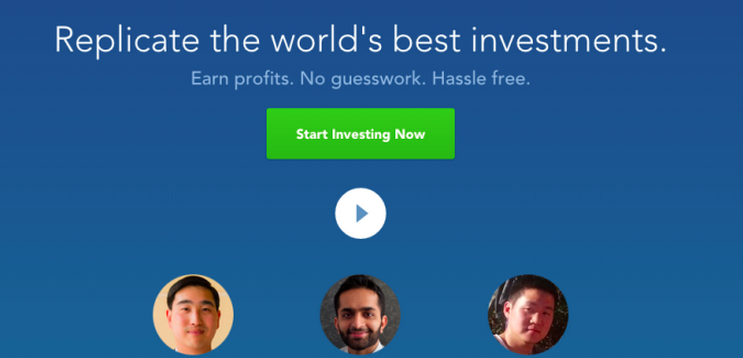
Saleem Khatri knows about investing. He also knows many other people don’t share his comfort level with the area.
“To summarize it, it’s a black box,” he says.
Enter Instavest. Khatri hopes the platform will make investing more accessible to people who haven’t made careers in investing.
“We make it ridiculously easy and dumb it down to the bare essentials so people can just cut through the crap and really understand what’s the rationale for making this investment for themselves,” Khatri explains.
Instavest launched March 10, 2015 and the team is steadily expanding. Khatri says they’ve been growing their user base by 15% a week, which they hope to continue, and they are working to integrate major brokerages into the platform.
The Model
Instavest’s defining characteristic is a model based on profit sharing. This is comparable to how private investors and hedge funds make money.
“So, if you gave me $100 to invest, and I made you $150, hedge funds usually get 20% of the profits,” Khatri says. “Historically, that’s only been reserved for these institutional investors because the SEC has a bunch of laws, but what we’re doing is bringing that whole concept to retail investors.”
Requiring investors to return a certain profit share is not legal, so Instavest has made the function optional. Khatri says the response from users has been surprising.
“Originally, we said people had to give 5% of their profits no matter what. Then we moved it down to 1%, then we found out from our lawyers that even that was illegal. You can’t require somebody to give you anything. Then we came up with this voluntary scheme, and I am really surprised that people are giving 10-12%. And it’s because they are seeing idea flow and they are making money and it’s kind of a virtuous cycle.”
In layman’s terms, here’s what’s going on: Instavest allows you to invest directly through the website. But, you can also follow other investors on the website to see what they are doing. Then if you make an investment based on a suggestion from a lead investor and you make money off it, you can give some of your profit to that investor, kind of like a tip.
The incentive for sharing investments can be measured in real financial gains.
“For example, if I only had $1,000 to invest as a lead investor, but my investment idea was so good that $10,000 of people copied my investments, I would get profit on that $10,000 in addition to my $1,000. So, it has a compounding effect which makes it really really powerful. It’s kind of like [the lead investors] are running their own fund.”
Khatri mentions one lead investor, Jay Yoon, who has developed an impressive track record as a lead investor since joining Instavest.
“He is the epitome of what we were trying to find. The guy has the ability to move markets. There are people in the world who don’t necessarily live in New York and work in a hedge fund but are just phenomenal investors.”
Trust and Tenacity
“With any financial service company that’s brand new, you have to establish trust with the customer,” Khatri says. “So, I was calling people and saying ‘hey, I want you to invest’ and they were like ‘Who the hell are you?’ What is this idea?’ Then we announced we were with Y Combinator and got approval from the SEC to do what we’re doing.”
After the announcement, audiences quickly warmed up to the idea of Instavest, though Khatri remains committed to building a sense of trust with his users.

“Trust is the biggest thing, and we’re earning that daily with our customers. Like, I’m 24/7. I’m in California but I’m up early since the markets are on the east coast, but I’m available for my customers anytime to make sure they get that personal advice.”
Khatri’s experience working with two successful startups informed his perspective when starting Instavest.
”You invest yourself mind body and spirit into what you’re doing and if you haven’t been a part of a young startup that’s trying to make it, it’s very hard to understand what it takes to be successful doing your own thing.”
Above all, Khatri believes successful entrepreneurs must be tenacious.
“Being an entrepreneur is like signing up to be punched in the face like three times a day and you just can’t let that bother you. You have to shake it off and you’ve gotta move on. And those are the people who succeed.”

From the markets of Budapest to the skyscrapers of London, Caitlin is our expert on all things European. Located in Copenhagen, Denmark, Caitlin keeps us up-to-date on the European startup landscape, plus culture, food and whatever she finds along the way.


